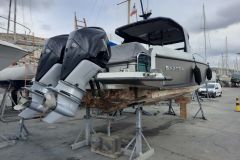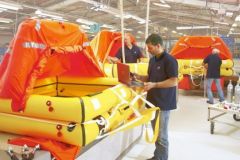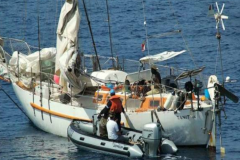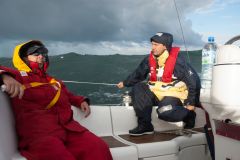" Every captain is obliged, as far as he can do so without serious danger to his ship, his crew and his passengers, to render assistance to any person, even an enemy, found at sea in danger of being lost. "
Brussels Convention, 1910. Article 11.
You are the captain. The responsibility to provide this assistance to anyone is therefore yours. Our responsibility.
A surprising lack of response from institutions
It is with these principles in mind that we have tried to take recommendations from the dominant actors in the management of these events that are the non-governmental organizations. From lack of response to lack of response, even the most concerned and most communicative of them, SOS Méditerranée, could not respond to our request for advice.

We do not usually take political sides. Except that in this case, the silence of the institutions is deafening. Have the quarrels of chapel, of subsidy or of donations, got the better of human behavior?
In any case, like the film Styx If you are in a boat, the possibility of being confronted with a boat full of people fleeing their region is real. In this case, it is common that you will be in front of an overcrowded boat. This boat will be filled with people who are sick, in poor health and in immediate danger of death.
The duty to warn
You cannot, and most importantly you should not, do nothing. Whatever the zone you are in, your obligation is to alert the emergency services. The CROSS in the first place. With all the means at your disposal, inform the authorities organizing the rescue of the situation. By staying in the area, you will also help to locate the disaster with certainty and precision.
You are neither a judge nor a lawyer, by alerting the authorities you are only applying the international duty defined by the law to preserve life at sea. You have accepted, by becoming a boater, this right and this responsibility. Point.
A precise alert
Once you've alerted, you'll need to reliably locate the boat in question to ensure that the rescue team can respond. In the same way as you would for any other vessel, survey it and indicate its position in relation to you. Indicate its course and heading. With binoculars, try to count the number of people on board, as the means deployed will vary depending on whether there are 5, 50 or 500 people to be rescued.
This is a tool that you are putting in place, allowing the right people to act.
In doing so, you are saving lives, not denouncing anyone.
The responsibility to choose how to intervene
The authorities, CROSS or MRCC will not give you orders, but advice. They will indicate a range of possibilities. They will eventually tell you the best alternatives, to avoid the worst ones. But, in any case, as the master on board, you are responsible for your actions and their consequences.
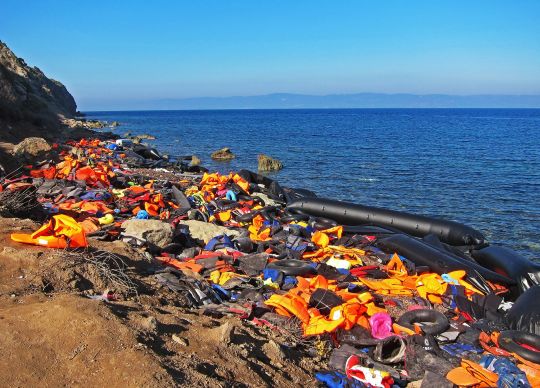
The dilemma remains heartbreaking, however. On the one hand, we would like to save all the people on board these ships. On the other hand, the law requires us to do so only if we remain safe.
However, the law does not impose morality on us.
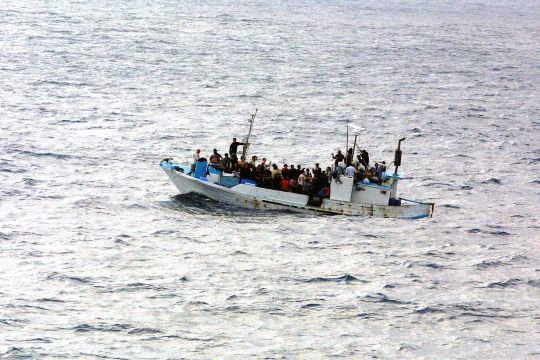
Women and Children First
Do not approach the boat unreasonably. You could raise hopes and encourage some unfortunate people to throw themselves into the sea to try to reach you. If your boat is not sized to carry the number of people in distress, there is a definite risk that you will have to make dramatic choices when rescuing them.
In other words, if some desperate people jump into the water to join your boat, you may have to choose who to save...
Also, you may not have the skills or the right crew to help people who have suffered in a sanitary way. Don't improvise yourself as a rescuer, you could do much more harm than good.
Don't leave, don't abandon them
Stay in the area as long as you don't have a visual on a transport operation of refugees from their boat to a more reliable vessel. Take pictures of what you see, the ship's registration, its name... Anything that could inform what is going on.
When you return, talk about
Back on the ground, talk. Explain what you saw, what you experienced and how you experienced it. This encounter is not a small one. You may not see any of the people you helped save again. You may not know if you saved one, ten or five hundred...





